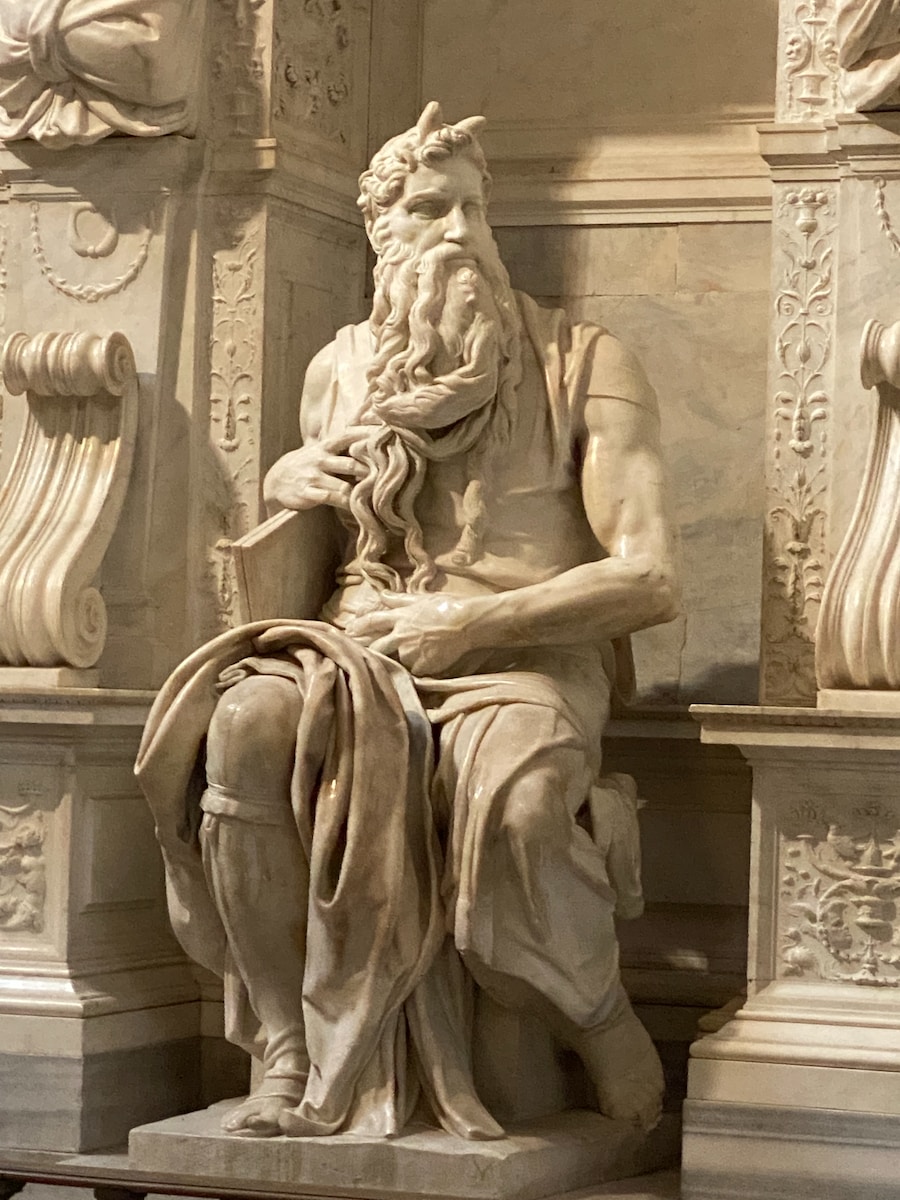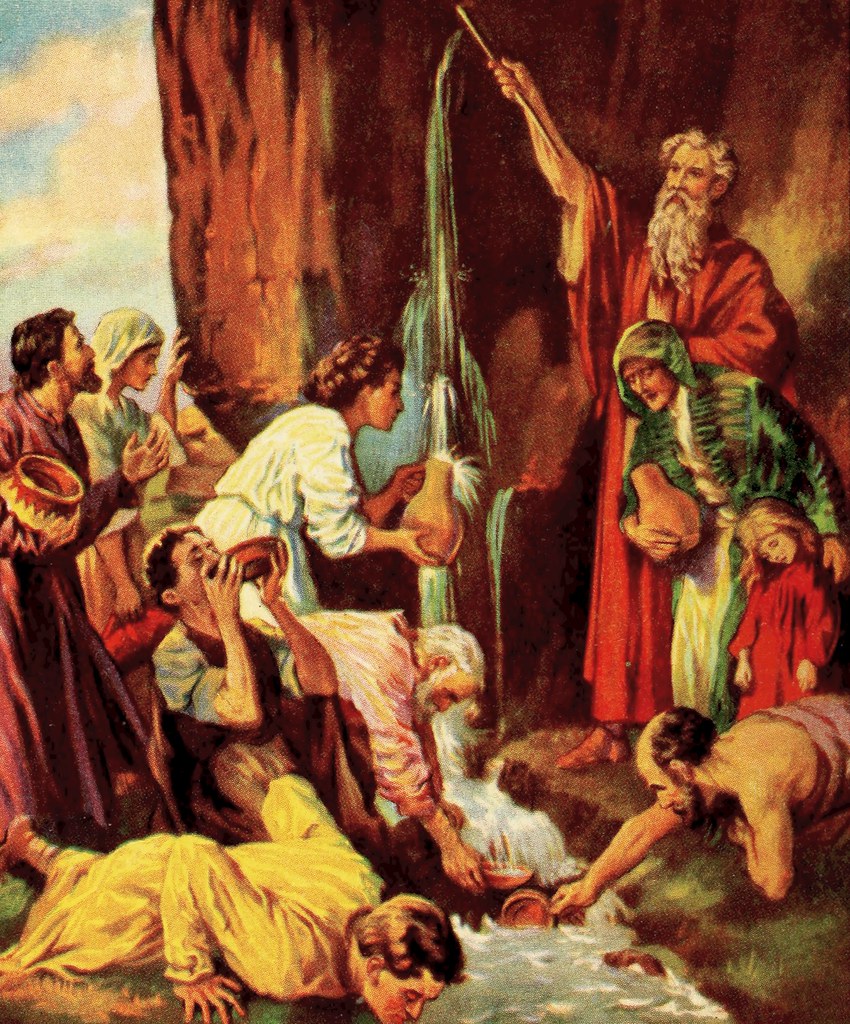In Exodus 2, we witness the unfolding of a remarkable series of events that ultimately set the stage for the arrival of the Messianic Jesus in the New Testament. The chapter begins by introducing us to a Hebrew couple from the tribe of Levi who were living in Egypt during a time when the Israelites were enslaved by the Egyptians.
This couple, Amram and Jochebed, already had a daughter named Miriam, and they were expecting another child. However, due to Pharaoh’s cruel decree to kill all Hebrew baby boys, they were filled with fear and uncertainty about the future of their unborn child. But despite the danger and the possibility of punishment, they chose to trust in God and conceal their pregnancy.
When the baby boy was born, they saw that he was no ordinary child. The Scripture tells us that he was “beautiful” and they decided to hide him for three months, hoping to protect him from Pharaoh’s wrath. But as his cries grew louder and it became harder to conceal him, they realized they needed to come up with a plan.
Jochebed, the child’s mother, ingeniously crafted a waterproof basket out of papyrus reeds and coated it with tar and pitch. She placed the baby in the basket and set it among the reeds along the bank of the Nile River, entrusting her beloved son’s life to the providence of God.
Meanwhile, the baby’s sister, Miriam, stationed herself nearby to see what would happen. As fate or divine intervention would have it, Pharaoh’s daughter, who had come to bathe in the river, noticed the basket among the reeds and sent her attendants to retrieve it. When she opened it and saw the crying Hebrew baby, she was filled with compassion and love for the child.
Miriam, seizing the moment, approached Pharaoh’s daughter and offered to find a Hebrew woman who could nurse the baby for her. The princess agreed, and Miriam promptly brought her own mother, Jochebed, who was able to nurse and care for the child while still remaining a part of his life.
Pharaoh’s daughter named the baby Moses, which means “drawn out.” This name would later carry great significance as Moses would be drawn out of the river and become the pivotal figure in leading the Israelites out of bondage and towards the Promised Land.
As Moses grew, he became aware of his Hebrew identity and the plight of his people. One day, he witnessed an Egyptian taskmaster brutally beating a Hebrew slave. Filled with righteous anger, Moses struck and killed the Egyptian, burying him in the sand. Word quickly spread, and when Pharaoh got wind of it, Moses fled Egypt and found refuge in the land of Midian.
In Midian, Moses encountered a group of women at a well who were being harassed by some shepherds. Displaying his characteristic courage and sense of justice, he defended the women and helped them water their flocks. These women were the daughters of Reuel, also known as Jethro, a Midianite priest who would later become Moses’ father-in-law.
Impressed by Moses’ actions, Jethro invited him to his home and offered him hospitality. Moses stayed with Jethro and eventually married one of his daughters, Zipporah. During this time, Moses expressed his gratitude towards Jethro by naming his firstborn son Gershom, which means “a stranger there.” This name symbolizes Moses’ status as a stranger in a foreign land but also foreshadows the role of the Israelites as strangers in Egypt.
It is not until the subsequent chapters of Exodus that we witness Moses’ direct interaction with God and his call to lead the Israelites out of bondage. However, the events in Exodus 2 set the stage for his divine appointment. Moses’ birth and preservation in the face of Pharaoh’s evil decree foreshadows the miraculous birth and preservation of Jesus Christ, who also faced the threat of death from those in power.
Moreover, Moses’ experience in Egypt, his flight to Midian, and his eventual return to liberate his people mirror the journey of Jesus Christ. Jesus, too, was born into a world enslaved by sin and oppression. He spent his early years hidden from those who sought to harm him, and he later emerged to confront the powers and principalities of his time, ultimately freeing humanity from the bondage of sin through his sacrificial death and resurrection.
Therefore, the story of Exodus 2 provides a powerful foreshadowing of the Messianic Jesus. It demonstrates God’s providential hand in preserving and preparing Moses for his role as deliverer, and it foreshadows the even greater deliverance that would come through Jesus Christ, who would offer salvation not only to the Israelites but to all humanity.
#Exodus2 #MessianicJesus #Foreshadowing #BiblicalReflections #GodsProvidence #BiblicalNarratives #Moses #BabyMoses #DivineIntervention #JesusChrist #SacrificialDeath #Deliverance #Oppression #TrustInGod #Providence #BiblicalHeroes #Faith #BiblicalJourneys #Redemption #GodsPlan

